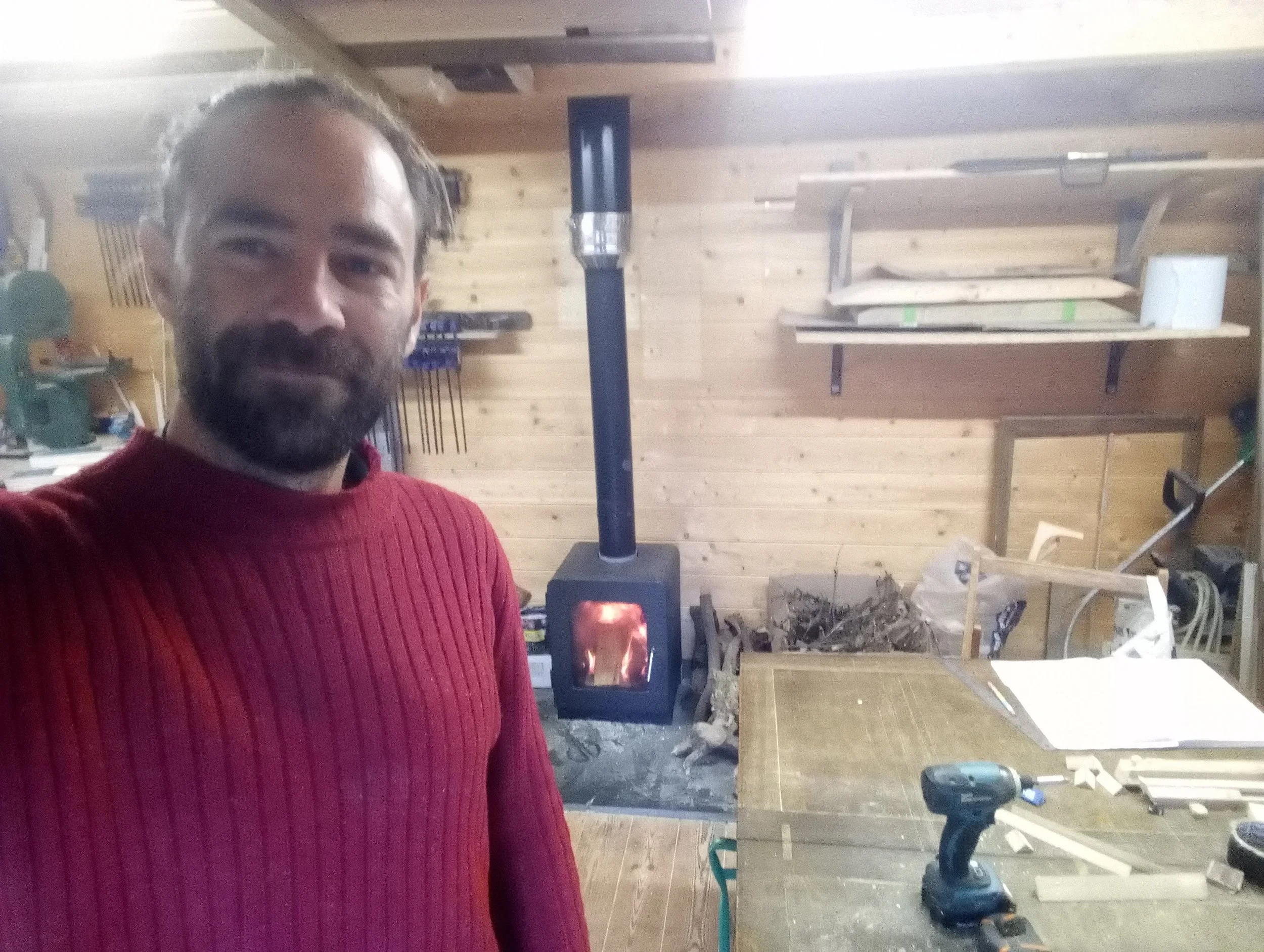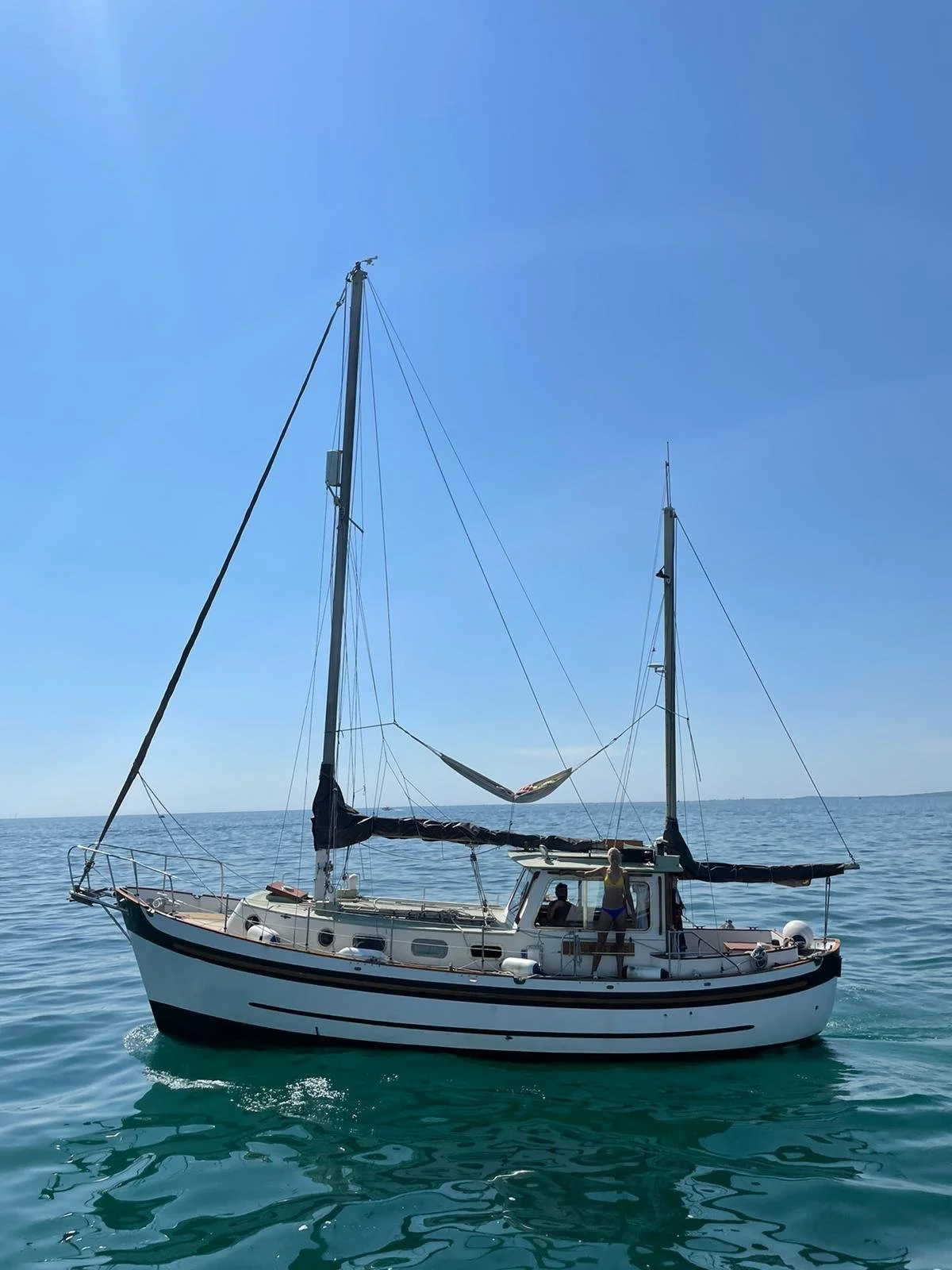This is a completely honest, no bulls**t appraisal of our work, supply chain, and lives in general. This is what you buy into with a Blackstock Board.
We’re currently working on a partnership with a local nature restoration group in order to achieve carbon neutrality with our products.
Wood sourcing
For our surfboards, we use a wood called paulownia from a responsibly managed plantation near Valencia in Spain. We bring it back from our yearly van trips to Spain so it has de facto zero freight miles. For the plywood skeletons we only use FSC certified European birch wood ply which contains no hazardous preservatives. The maple veneers we use to hand make the skateboards are also European FSC certified as ‘responsibly sourced’. We use offcuts from the skateboard veneers and surfboard paulownia to make our hand planes as well as salvaged flooring from construction projects. Our fins are also made with these maple offcuts plus bits of salvaged aluminium sheet from a nearby metalwork shop.
Other materials
Our surfboard and hand plane finishing is done using a special mix of 100% natural plant-derived oils which we call our ‘Forest Blend’. It was the result of 3 years of research and we think it’s awesome. For adhesives for bonding the wood joints we use a diluted bio-epoxy from Entropy Resins (NOT ‘green’ as many users will attest, but the best of a bad bunch – it’s got a 20% plant-based content) and a D4 expanding polyurethane glue. The fin boxes are standard issue polypropylene units. The skateboard veneers are bonded with a D4 PVA wood glue (Titebond) and decorated using water-based wood stains and scavenged cans of half-used spray paint from building sites. The straps for our hand planes are made from salvaged seat belts from a scrap yard and regular stainless steel ironmongery.
Processes
We hand make everything in our workshop. Only stitching the hand plane straps and some of the 3D modelling for our surfboard shaping have been outsourced, but only to small local Brighton businesses who we see as our collaborators. Any unusable wooden offcuts or shavings go into 1 of three places: the workshop woodburner to keep us warm in the winter; the workshop garden compost to balance the nitrogen-carbon input, complementing our food waste; or Ben’s composting toilet. We don’t buy spray cans so apply our stains or lacquers using a spray gun or rollers. Our adhesive mixing is all done in used take-away coffee cups collected from friends and family and reused safety gloves from Sussex University. Our entire workshop is second hand and built with no cement on dry-stone foundations and insulated with cork panelling left over from a Tate Modern sculpture.
Lifestyle
We do our best to maintain a slow, sustainable way of living. Doing things slowly means doing things carefully, well and with enjoyment. We are not interested in profiteering, in fact are yet to be convinced that ‘profits’ and/or shareholders are necessary for the existence of enterprises. Growth isn’t essential and bigger is not always better. We eat a balanced diet of mostly vegetables and are committed to not using air travel as a means of transport. We cycle to the workshop every day and Ben lives on an old sailing boat in the local marina.




